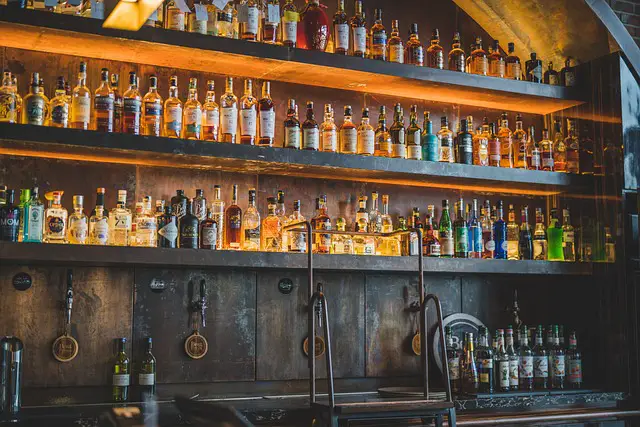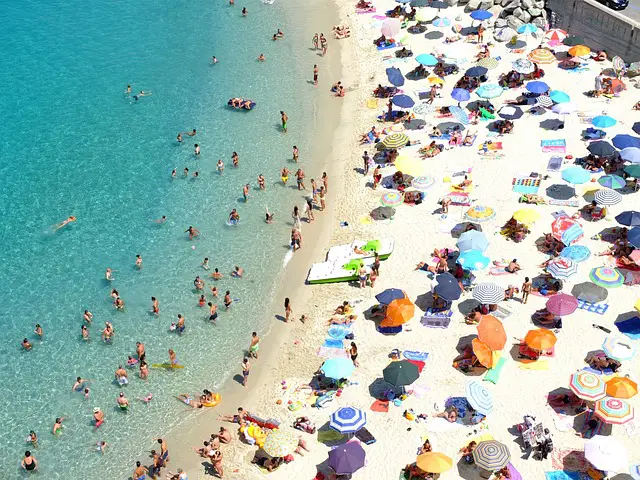As the summer heat takes its toll, nothing satisfies quite like a chilled glass of wine. But when it comes to keeping your favorite bottles at the perfect temperature, should you invest in a wine cooler or rely on your trusty refrigerator? The eternal debate between wine cooler versus fridge has sparked countless discussions among oenophiles and casual wine enthusiasts alike. In this article, we will delve into the world of chilling solutions and explore the pros and cons of each, shedding light on everything you need to know to make an informed decision. So grab a glass, sit back, and join us as we uncover the secrets behind achieving that perfectly chilled wine.
Obsah
- 1. Understanding the Differences: Wine Cooler vs Fridge – Which Is the Right Chilling Solution for You?
- Wine Cooler vs Fridge – Which Is the Right Chilling Solution for You?
- 2. Temperature Control: Exploring the Advantages and Limitations of Wine Coolers and Refrigerators
- 3. Wine Preservation: How Wine Coolers and Fridges Maintain Optimal Humidity Levels
- 4. Design and Functionality: Comparing the Features of Wine Coolers and Refrigerators
- 5. Wine Collection Size: Choosing the Right Cooling Solution Based on Quantity and Variety
- 6. Energy Efficiency: Evaluating the Cost and Environmental Impacts of Wine Coolers and Fridges
- 7. The Cellaring Factor: Discovering the Benefits of Wine Coolers for Long-term Storage
- 8. Making the Choice: Expert Recommendations and Tips for Selecting the Ideal Chilling Solution
- In Retrospect
1. Understanding the Differences: Wine Cooler vs Fridge – Which Is the Right Chilling Solution for You?
Wine Cooler vs Fridge – Which Is the Right Chilling Solution for You?
When it comes to chilling your beverages, it’s essential to have the right appliance for the job. The debate between a wine cooler and a fridge often arises, leaving many pondering which option is best suited to their needs. Let’s delve into the differences between these two chilling solutions to help you make an informed decision:
- Temperature Control: One crucial distinction between wine coolers and fridges is that wine coolers are specifically designed to maintain a consistent temperature range ideal for wines. They offer precise temperature control, enabling you to store reds, whites, and champagnes all at their recommended temperatures. On the other hand, fridges generally provide a broader temperature range and are suitable for chilling various beverages and food items.
- Humidity: Wine requires a specific level of humidity to age properly. Wine coolers are equipped with humidity control features, ensuring the ideal conditions for your prized bottles. Fridges, on the other hand, may lack humidity control, which can affect the quality and taste of your wine over time.
- Aesthetics: Wine coolers are often designed with sleek exteriors, glass doors, and elegant finishes, making them a visually appealing addition to any space. On the contrary, fridges are usually more utilitarian in appearance, focusing on functionality rather than aesthetics. The choice between the two depends on whether you prioritize style or practicality.
While it’s ultimately a matter of personal preference and requirements, understanding the differences between wine coolers and fridges can help you decide which chilling solution aligns best with your needs. Assess factors such as temperature control, humidity, and aesthetics to make an informed choice and ensure your beverages are always perfectly chilled.
2. Temperature Control: Exploring the Advantages and Limitations of Wine Coolers and Refrigerators
Temperature control is crucial when it comes to preserving the quality and taste of your favorite wines. Wine coolers and refrigerators are two popular options for achieving the ideal temperature for storing and aging your wine collection. Understanding their advantages and limitations can help you make an informed decision.
Advantages of Wine Coolers:
- Designed specifically for wine storage, wine coolers offer precise temperature control, allowing you to set and maintain the perfect temperature for your wines.
- Most wine coolers provide humidity control, ensuring the optimal moisture level, which is essential for preserving the integrity of corked bottles.
- Compact and aesthetically pleasing, wine coolers are available in various sizes and designs to suit different needs and personal preferences.
- Specialized features such as UV protection, vibration reduction, and adjustable shelving systems can be found in many models, further enhancing the storage conditions for your wines.
Limitations of Wine Coolers:
- Wine coolers are typically smaller in capacity compared to refrigerators, making them more suitable for wine enthusiasts with modest collections.
- They may have a limited temperature range, which might not accommodate other beverages or certain types of wines that require specific temperature conditions.
- While efficient at maintaining temperature and humidity levels, wine coolers may not offer the same energy-saving features as some modern refrigerators.
3. Wine Preservation: How Wine Coolers and Fridges Maintain Optimal Humidity Levels
When it comes to preserving the quality of your beloved wines, maintaining optimal humidity levels is a crucial factor. Wine coolers and fridges play a significant role in ensuring that your bottles are stored under ideal conditions, granting them the ability to age gracefully and retain their flavors.
One of the main advantages of wine coolers and fridges is their ability to control humidity levels effectively. These appliances are designed to keep the air inside at around 70% humidity, which is optimal for wine storage. This balanced humidity prevents corks from drying out, allowing them to maintain their integrity and preserve the quality of the wine. Moreover, the controlled humidity also helps to prevent the growth of mold or mildew on the bottles, ensuring that each glass you pour is as delightful as the first one.
- Prevents oxidation: By maintaining optimal humidity levels, wine coolers and fridges play a vital role in preventing oxidation. Oxidation can negatively affect the taste of wine, making it dull and flat. The humid environment of these appliances helps the cork to remain swollen, creating a tight seal that minimizes contact with air and limits the oxidation process.
- Preserves aroma: Wine is renowned for its enticing aromas, and a well-maintained humidity level ensures that these aromas are preserved. High humidity prevents the corks from shrinking, which could result in air leakage and the loss of delicate fragrances from your wine. With a wine cooler or fridge, you can savor the full aromatic experience with each sip.
- Longevity of aging: Proper humidity levels are essential for wines that will age over time. Dry corks can lead to premature aging, while overly humid conditions might cause labels to peel or even mold to form. By investing in a wine cooler or fridge, you are creating an environment that supports the longevity of your wine collection.
With the ability to maintain optimal humidity levels, wine coolers and fridges act as guardians for your cherished wines, ensuring that each bottle remains in pristine condition and ready to be enjoyed whenever the occasion arises.
4. Design and Functionality: Comparing the Features of Wine Coolers and Refrigerators
When it comes to storing your valuable wine collection, design and functionality are key factors to consider. While both wine coolers and refrigerators can serve the purpose of keeping your wines at the ideal temperature, they differ in their features and suitability for wine storage.
1. Temperature Control: Wine coolers are specifically designed to provide precise temperature control for wines. They offer a wider temperature range and allow you to set different zones for reds and whites. On the other hand, refrigerators have a generic temperature control system suitable for various food items, which may not always meet the specific requirements of wines.
2. Humidity Levels: Wine coolers also excel in maintaining proper humidity levels, which is crucial for the aging process of wines. They are equipped with humidity control features to prevent the corks from drying out and ensure the quality of your wines. Refrigerators, however, tend to have lower humidity levels since they prioritize food preservation rather than wine storage.
5. Wine Collection Size: Choosing the Right Cooling Solution Based on Quantity and Variety
When it comes to storing your precious wine collection, it is crucial to consider both the quantity and variety you possess. Each bottle has unique requirements to maintain its optimal flavor and aging process. To ensure the longevity and quality of your bottles, investing in the right cooling solution is essential.
Firstly, the size of your wine collection plays a significant role in determining the cooling solution that best suits your needs. If you have a smaller collection, a compact wine refrigerator can effortlessly cater to your requirements. These specialized refrigerators offer precise temperature control, allowing you to store your white, red, or sparkling wines at the ideal temperature. On the other hand, for larger wine collections, it is recommended to consider a spacious wine cellar with multiple temperature zones. This will enable you to organize your bottles efficiently and maintain different temperature settings for various wine types.
- Quantity:
- – For smaller collections: Opt for a compact wine refrigerator that offers temperature control.
- – For larger collections: Consider a spacious wine cellar with multiple temperature zones.
- Variety:
- – Red wines: Storing red wines at around 55°F (12-14°C) is ideal for aging and preserving their rich flavors.
- – White wines: Temperature control between 45-50°F (7-10°C) helps maintain the delicate flavors of white wines.
- – Sparkling wines: Keeping sparkling wines at a cool 38-45°F (3-7°C) will retain their effervescence and taste.
6. Energy Efficiency: Evaluating the Cost and Environmental Impacts of Wine Coolers and Fridges
When it comes to choosing the perfect appliance for keeping your wine at the ideal temperature, considering energy efficiency is crucial. Wine coolers and fridges not only ensure your favorite bottles are stored at the right conditions but also play a significant role in the cost and environmental impacts. Let’s take a closer look at the factors to consider when evaluating the energy efficiency of these appliances.
1. Energy Star Certification: Opt for wine coolers and fridges that have earned the Energy Star certification. This trusted symbol indicates that the appliance meets or exceeds energy efficiency standards set by the Environmental Protection Agency. Choosing Energy Star certified models ensures lower energy consumption and reduces greenhouse gas emissions.
2. Insulation and Door Seals: Insulation plays a crucial role in maintaining the desired temperature inside your wine cooler or fridge. Look for units with thick insulation and well-sealed doors to minimize temperature fluctuations and prevent energy wastage. Faulty door seals can allow cold air to escape and increase energy consumption.
7. The Cellaring Factor: Discovering the Benefits of Wine Coolers for Long-term Storage
When it comes to storing wine for the long haul, maintaining ideal conditions is of paramount importance. This is where wine coolers step in to ensure your precious bottles ages gracefully and reaches its peak potential. Here, we unravel the benefits of wine coolers for long-term storage that separates them from traditional methods.
Precise Temperature Control: Wine is a sensitive elixir that demands a consistent temperature to mature effectively. Wine coolers offer the perfect solution, providing a controlled environment where you can set the ideal temperature for your prized collection. From cooling white wines at a refreshing 45°F (7°C) to preserving red wines at a cellar-like 55°F (12°C), these specially designed refrigeration units help preserve the taste, character, and integrity of each bottle.
Optimal Humidity Levels: Wine continues to evolve and transform during its aging process. One crucial factor that contributes to this transformation is humidity. Wine coolers excel in maintaining optimal humidity levels, which are usually around 70%. This allows the wine corks to remain moist, creating a hermetic seal that safeguards against oxidation and prevents unwanted air from entering the bottle. By keeping the humidity just right, wine coolers ensure your collection ages gracefully over time.
8. Making the Choice: Expert Recommendations and Tips for Selecting the Ideal Chilling Solution
Choosing the right chilling solution for your specific needs can be a daunting task, with a myriad of options available in the market. To ensure you make an informed decision, we consulted industry experts who have shared their valuable recommendations and tips. Consider these factors when selecting the ideal chilling solution:
- Capacity: Assess your cooling requirements and select a chilling solution with the appropriate capacity. A solution that is too small may result in inadequate cooling, while one that is too large could lead to unnecessary energy consumption.
- Efficiency: Look for chilling solutions that are energy-efficient to reduce operational costs. Check for eco-friendly certifications and look for systems that utilize advanced technologies, such as variable-speed compressors, to optimize energy usage.
- Temperature Control: Ensure the chilling solution offers precise temperature control to meet your specific needs. Look for systems that provide adjustable setpoints and have the capability to maintain stable temperatures, even under varying conditions.
Additionally, it is recommended to consider the noise level, maintenance requirements, and the reputation of the manufacturer or supplier. Don’t hesitate to reach out to industry professionals who can provide personalized recommendations based on your unique requirements. By carefully evaluating these factors and seeking guidance from experts, you can confidently select the ideal chilling solution that will efficiently meet your cooling needs.
In Retrospect
In conclusion, both wine coolers and fridges offer effective chilling solutions for wines. Ultimately, the choice depends on your preferences and budget.










